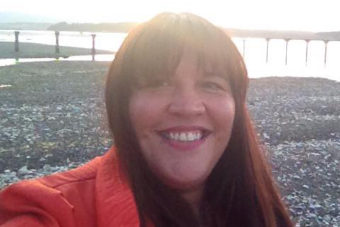
The decline of many of Alaska’s indigenous languages happened during the era of boarding schools and missionaries. As children, some Alaska Natives were punished for speaking their mother tongue. When those children became adults, many did not speak their language to their children to spare them from the pain they experienced.
Acknowledging this generational trauma is what led Shyanne Chulyin Ch’ivaya Beatty to study Han Hwech’in, the language of her ancestors. In this fourth installment of a five-part series, Beatty talks about reclaiming identity through the use of Native names.
Listen to Beatty or read transcribed excerpts from her interview below.
Shyanne Chulyin Ch’ivaya Beatty
My first name that came to me was a Dena’ina Athabascan name, not a Han Hwech’in name. I was at the time working with a Dena’ina Athabascan in Anchorage, Alaska, and he gave me this name. He said, “You’re Chulyin Ch’ivaya.” And I said, “What does that mean?” “It means Raven Whirlwind, because you’re mischievous like a Raven and you come in and out of a room like a whirlwind.”
People are using their Native names or language within their own social identity. The generation of trauma was my grandparents’ and they see their children now being really proud of their identity.
I feel that just within the last 5-10 years we’re learning more about how are names are really. What I mean by that is I always thought we were Han Gwich’in. I’ve started learning more about my language (and) we’re actually Han Hwech’in, which is like H-W-E-C-H-I-N instead of Gwich’in.
I think that more and more people are realizing that just like Aleut people are not just Aleut people. They’re Alutiiq, they’re Sugpiaq, they’re Unangan, they’re Unangax, and we are really taking hold of owning our own identity, being educated by our identity and making sure that we educate others about that and that’s why I think we have this surge of people who are not only showcasing their Native language but their own identity.
The meaning of names: Indigenizing government, part 1
The meaning of names: A family history, part 2
The meaning of names: A time for change, part 3
The meaning of names: The aftermath of generational trauma, part 4
The meaning of names: The world of social media, part 5
